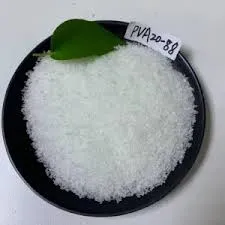The Role of Cellulose Suppliers in Modern Industries
Cellulose, a biopolymer composed of glucose units, is the most abundant organic polymer on Earth. It serves as a primary structural component in the cell walls of green plants, algae, and some fungi, making up about 33% of plant matter. The versatility and sustainability of cellulose have led to its widespread use in various industries, prompting a growing demand for cellulose suppliers who can provide high-quality, reliable products.
Importance of Cellulose
Cellulose has a multitude of applications, ranging from food products to pharmaceuticals and construction materials. In the food industry, cellulose is utilized as a texturizing agent, stabilizer, and thickener. It can improve the texture of dairy products, enhance the mouthfeel of sauces, and serve as a low-calorie substitute for fats. In pharmaceuticals, cellulose is often used as an excipient, aiding in the delivery of active ingredients in tablets and capsules. Furthermore, cellulose derivatives, such as microcrystalline cellulose and carboxymethyl cellulose, are essential in various formulations.
Beyond its applications in food and medicine, cellulose plays a significant role in the field of textiles, where it is converted into fibers such as rayon and lyocell. The construction industry also leverages cellulose for insulation materials and bio-based composites, supporting the move toward sustainable building practices.
The Role of Cellulose Suppliers
The growing demand for cellulose and its derivatives has created a robust market for cellulose suppliers. These suppliers are essential in ensuring that industries receive consistent and high-quality cellulose products. The role of cellulose suppliers goes beyond mere transactional relationships; they often provide expertise in sourcing, processing, and applications of cellulose.
cellulose supplier

A reliable cellulose supplier must maintain rigorous quality control standards to meet industry regulations and ensure product safety. This is particularly critical in sectors such as food and pharmaceuticals, where impurities can lead to adverse health effects. Suppliers also work to innovate and improve the processing techniques used to derive cellulose, optimizing yield, and reducing waste in the production process.
Furthermore, cellulose suppliers are increasingly adopting sustainable practices. As consumers demand more environmentally friendly products, suppliers are exploring methods to produce cellulose from renewable resources through sustainable forestry and agricultural practices. Additionally, many suppliers are investing in research and development to create biodegradable and eco-friendly cellulose derivatives, responding to environmental concerns associated with plastic use.
Challenges in the Supply Chain
Despite the advantages and increasing applications of cellulose, suppliers face several challenges. Fluctuating raw material prices, which can stem from global supply chain disruptions or agricultural yield fluctuations, can impact production costs. Climate change is another significant concern. Natural disasters or shifts in agricultural patterns can affect the availability of cellulose sources, thereby influencing supply and pricing.
Moreover, competition is intensifying in the cellulose market. With the rise of synthetic alternatives and other biopolymers, cellulose suppliers must continuously innovate and demonstrate the unique advantages of their products. They need to communicate the benefits of cellulose, such as its biodegradability, non-toxic properties, and versatility, to differentiate themselves from synthetic competitors.
Conclusion
Cellulose suppliers play a crucial role in supporting the evolving industries that rely on this valuable biopolymer. By providing high-quality, sustainable cellulose products, they contribute to advancements in food technology, healthcare, textiles, and construction. While challenges remain, the ongoing commitment to sustainability and innovation in the cellulose supply chain positions these suppliers as vital players in a greener, more sustainable future. As industries continue to embrace cellulose for its versatility and eco-friendly attributes, the importance of cellulose suppliers will only grow.
-
The Application and Significance of Construction RdpNewsMay.19,2025
-
Industrial Grade HpmcNewsMay.19,2025
-
Building Coating Adhesive Building Coating Adhesive HpmcNewsMay.19,2025
-
Application Of Hpmc For Detergent For Detergent In DetergentsNewsMay.19,2025
-
Application Of Hpmc Cellulose In Cement-Based MaterialsNewsMay.19,2025
-
Application Of High Quality Hpmc For Construction In The Field Of ConstructionNewsMay.19,2025




